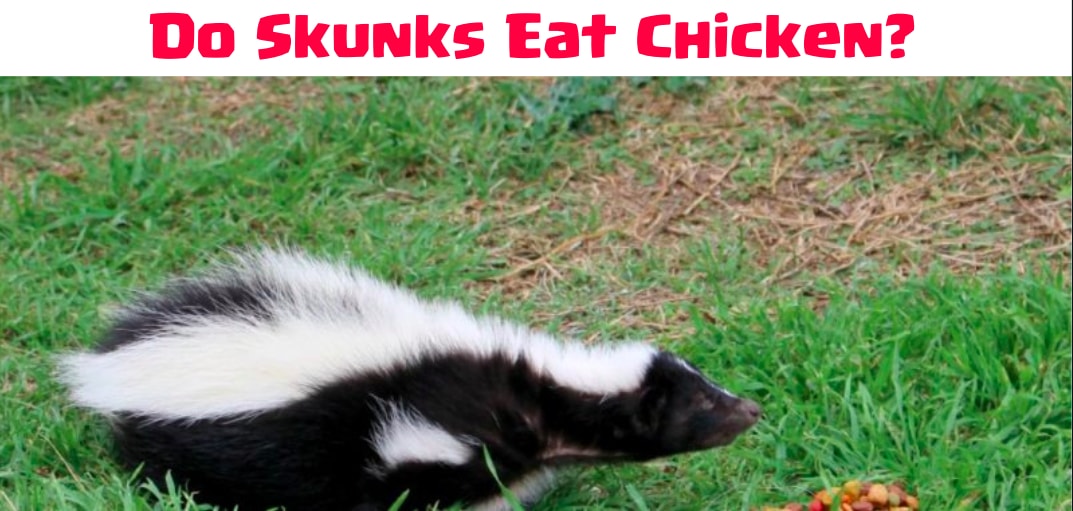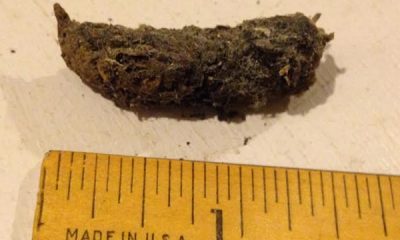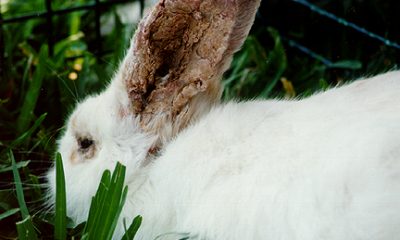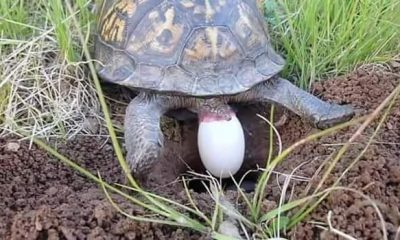Skunk
Do Skunks Kill #Chicken #Rabbits #Snake #Mice #Cats?
There are several things that skunks love to eat. And that would include insects, berries and small animals. But, do skunks eat meat? The predominant question that most of the poultry owners would want to confirm is – yes, Skunks do eat chicken!
Do Skunks Really Eat Chicken?
Yes, Skunks do eat chicken! Since they love meat, and chicken should not be an exception either. However, they do not find chicken as the prime option as food.
While skunks have more muscular paws and are well endowed to be a powerful predator, and thus they can kill the chicken, they usually do not attack the large animals. They ideally stick to the smaller prey because they consider the fights to be dangerous enough. However, if they get a chance, they MAY attack and kill the chicken.

Skunks are known to be attacking the farms and sheds. They have also been known to kill poultry and other animals smaller in size. While they may not be willing to indulge themselves in fights of any kind, they can, however, indulge in killing your chickens in some instances.
Chickens are known to eat both plants and animals. Some of the significant food elements that skunks seem to be fond of would include plants insects, rodents, lizards, salamanders, frogs, snakes, birds, larvae, moles, berries, roots, leaves, grasses, fungi, nuts, honey bees, and chicken eggs. In fact, they may even find pet food such as cat food or dog food one of the best food alternatives. It may be a good idea to keep your pet skunks away from such areas.
If you are worried about whether skunks kill chickens, you can be assured that a skunk will not attack an adult bird right away. It may kill and eat the smaller chicken, but rarely attack the grown-up birds.
Skunks tend to be of the same height and size as those of the chickens. The fight between a skunk and cock or hen may be quite dangerous and can even harm the skunk. The skunk knows this intuitively, and that should be one of the reasons why it does not attack any adult bird. Moreover, the beaks and talons of the cock or hen can be their greatest ever defense weapon. This further makes the skunk avoid fighting with an adult cock or a hen.
Do Skunks Kill Chickens?
Ideally speaking, skunks do not kill chickens. The prime reason here is that the chickens can maim them. Many of the poultry owners go on record that their chickens have never been killed by skunks. Of course, they would attack a hen that attempts to protect her eggs.
Of course, that should not mean that you would never witness a chicken that has not been killed by a skunk. If a hungry skunk comes across a hen or cock and if it can win the battle between them, it would perhaps kill it and consume the meat. What we are talking about here is all about occasional occurrences.
Like we have already stated above, skunks are quite fond of eggs. The only occasion you would see them attacking chickens would be when they are looking to steal eggs. Skunks are known to go for easier targets. The chicken eggs are the perfect protein-rich source food for them. However, if they are caught in the act of stealing the eggs, they would tend to attack the chickens.
How to Keep Your Chickens Away From Skunks?
Skunks are basically nocturnal animals. It may not be much easy to find how to safeguard your chicken or eggs from being eaten or killed by a Skunk. However, it may not be that difficult either. Skunks are known to be not trying much hard to try for their food.
You should definitely be able to safeguard your chickens, chicks, and eggs from the prying eyes of your skunk with a proper degree of planning and watchful eyes.
Do Skunks Eat Eggs?
Well, yes. Eggs are one of the hot favorites for the skunks. They would just pick an egg and beat it with their nose to consume the contents within the egg. In fact, they are so stealthy that you would never realize that the eggs have been eaten by the skunk unless you have a closer look.
The eggs that are eaten by a skunk do appear as if they have been hatched. The only thing that will give it out is the crushed opening at one end. If you do not notice it closely enough, you will end up believing that the eggs have been hatched and they came up empty.
Do Skunks Eat Mice?
Well, yes. Skunks eat mice. That would perhaps make them one of the excellent means of keeping the mice at bay from your barns or other valuable possessions. They can be an excellent option for pest control.
Skunks are actually not much picky about what to eat and what not to eat. They are known to attack the small animals that appear to be defenseless and do not protest. This includes field mice and rabbits as well.
While that can be good news to help you keep the mice away, it can also be a concern if you have been keeping mice or chinchillas as your pets. Skunks can easily prey on the chinchillas since the chinchilla’s tens to be quite small and out of defense when attacked by a skunk.
Do Skunks Eat Cats?
A sigh of relief there. Cats have always been favorites for most of us humans as lovely and cute pets. If you were planning to keep a skunk as a pet and worried about your cats, you can go fearless. Skunks do not prey on or eat cats.
However, it should be remembered that skunks are known to attack smaller preferences when it comes to their prey. This would make puppies and kittens their hot favorites. Though the skunks will not attack a grown-up or an adult cat as such, you would find them attacking and killing a kitten or a small-sized cat.
Whether your skunk may harm your cat will be dependent upon the situation of the fight and how the cat has been able to beat the skunk. If your skunk does jot have its glands removed, it may end up spraying the cat, and in the act, it can take the cat out of the guard. In such a tender moment of being defenseless, the skunk may overpower and kill the cat, though it may or may not eat it.
Do Skunks Kill Snakes?
Yes, that should be one of the vast options that should help you achieve the best results. Skunks are known to attack the snakes. What makes it even more excellent fact is that the skunks can even attack the poisonous snakes as well.
The skunks are a few rare animals that have been observed to be immune to snake venom. This would perhaps make them one of the great options to address and control the rattlesnake population in your backyard. Having a skunk in as your backyard pal will ensure that the rattlesnakes will definitely stay away.
Rattlesnakes apart, skunks do kill almost every kind of snake. In fact, they can even kill other poisonous animals such as scorpions and other venomous spiders. Having a skunk as a pet can perhaps be one of the excellent options for ensuring you are away from venomous animals around you.
As a matter of interest, you would find it astonishing to understand that skunk remains unaffected by even 100 times of the venom of a snake that can kill any other pet or domestic animal.
Do Skunks Kill Rabbits?
Well, if you have a rabbit as a pet, it may be quite important to notice that having a rabbit and a skunk together in your home would definitely mean that you would need to take care of your rabbit and keep it under some sort of guard.
A skunk normally feasts on smaller animals, and sadly enough – skunks do kill rabbits. Skunks belong to the family of carnivores, and that would be one of the reasons you should be careful enough to provide proper shelter to your pets before you can opt for a skunk for a new pet.
Recommended Reading – Can you Own Skunk As a Pet?
Excellent Options to Make Your Own Skunk Deterrent
Sprinkling cayenne pepper should be one of the excellent options for ensuring that the skunks are not able to dig or enter into the coop. Putting the mothballs around the coop can also be an excellent option. However, do ensure that the mothballs are not placed where the chicks will have access to them.
Here is how you can make the homemade Skunk deterrent:
Closing Thoughts on Skunks & Their Preys
Well, that should provide you with a good deal of information on how to take care of your chicken and other pets such as cats from the skunks. We would just assume that you would be able to handle the chicken coop and other significant elements to take care of your chicken.
Check out the best options outlined in this post and get ready to opt for the cute skunk as one of the best additions to the already growing family of your pets.

-

 Skunk4 years ago
Skunk4 years agoWhat Does Skunk Poop Look Like? Images & Identifications
-

 Bunny4 years ago
Bunny4 years agoHow to Get Rid of Mites on Rabbits? #NaturalRemedies #Video
-

 Turtles4 years ago
Turtles4 years agoHow To Take Care of Turtle Egg At Home?
-

 Horse3 years ago
Horse3 years agoHow Much Weight Can a Horse Carry? #Clydesdale #Friesian #Mustang #Draft
-

 Bunny4 years ago
Bunny4 years agoHow Big Do Dwarf Bunnies Get? – Amazing Facts #Images
-

 Turtles4 years ago
Turtles4 years agoHow to Take Care of Snapping Turtle Eggs? #Incubating #Hatching
-

 Horse4 years ago
Horse4 years agoDifference Between Riding a Mule and a Horse
-

 Turtles4 years ago
Turtles4 years agoWhat Does Aquatic Turtles Eat? #Snacktime #LoveForFood








1 Comment